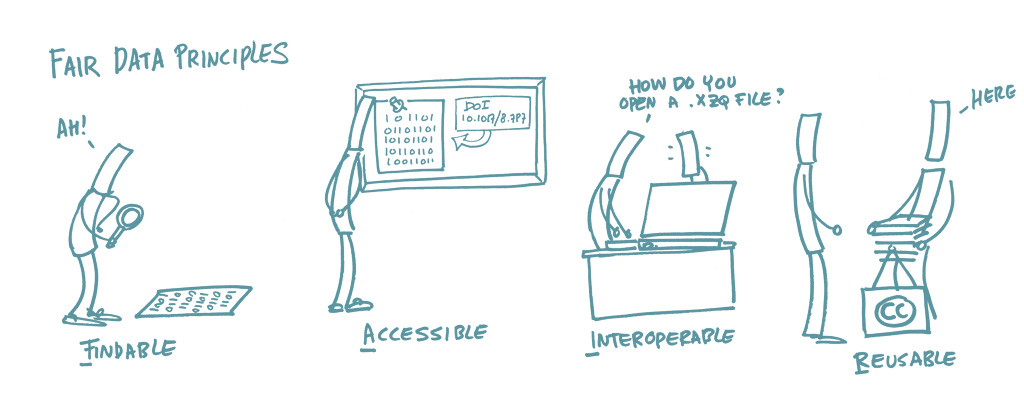In 2016 were published the “FAIR Guiding Principles for scientific data management and stewardship” in the Scientific Data. In this article introduced the FAIR principles, which provide a set of specific qualities that research data publications should adhere to in order to make tha data Findable, Accessible, Interoperable, and Reusable (FAIR).
According to Wilkinson et al., the goal of FAIR* data is to ensure the efficient use of research data:
- Findable: Data should be easy to locate for those who need it. This means it must be appropriately described to facilitate retrieval through search engines or data catalogs. For example, metadata should include details such as the date of data collection, the measuring instrument used, and the data collection procedure.
- Accessible: Data must be stored in repositories that ensure secure, controlled, and stable access over time. To achieve this, data should have a unique and persistent identifier, such as a DOI (Digital Object Identifier).
- Interoperable: Data should be structured in a way that enables interpretation and use across various computer systems. This requires the use of standardized formats that allow integration with other datasets.
- Reusable: Data must be provided in a way that allows other researchers to reuse it. This involves specifying usage licenses, reuse conditions, and any potential restrictions.
* Extract form the Open Science Course of Catalan universities.

